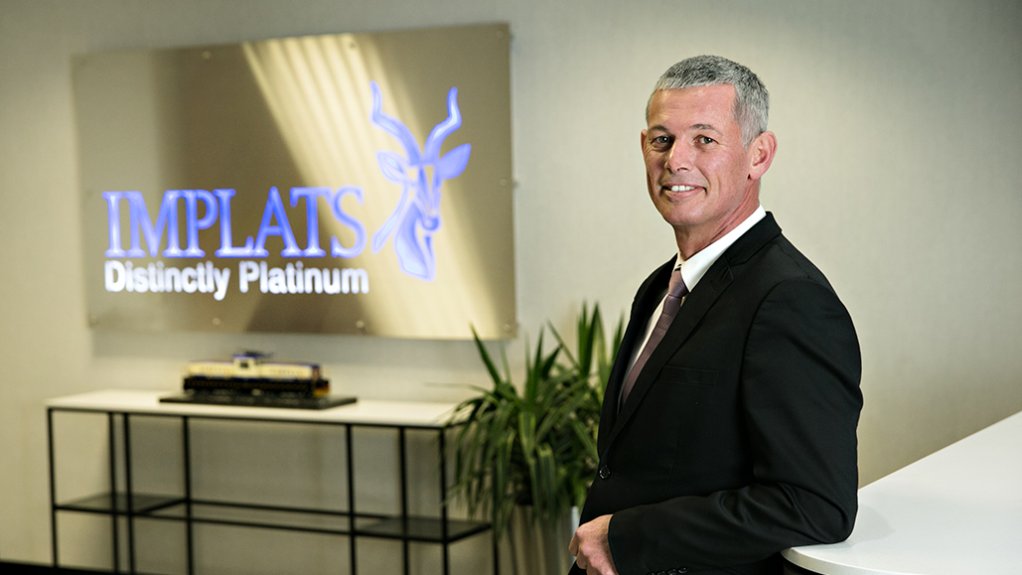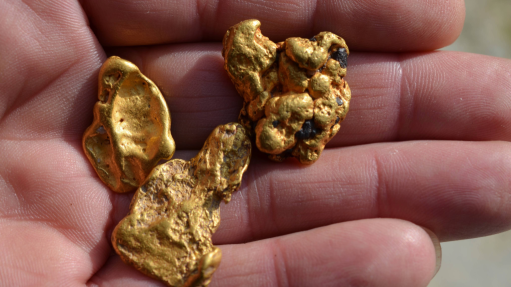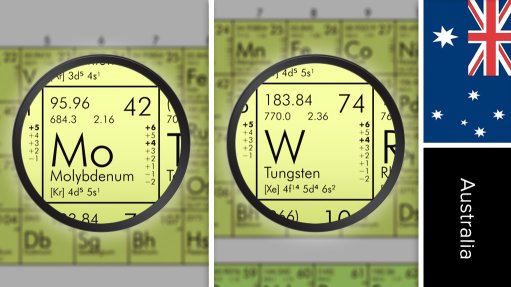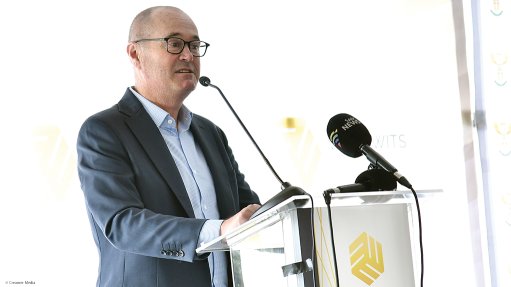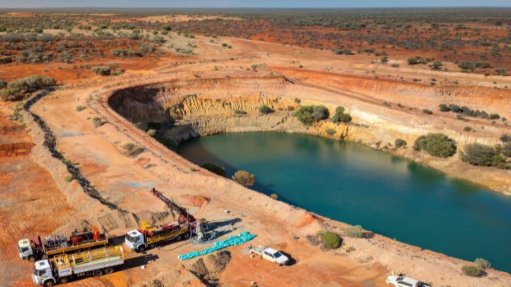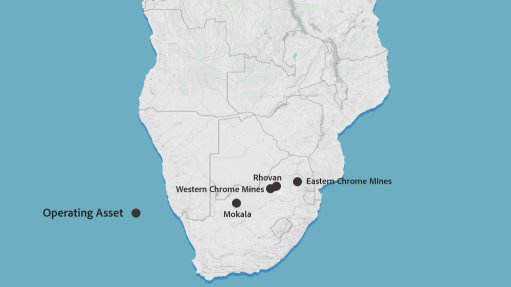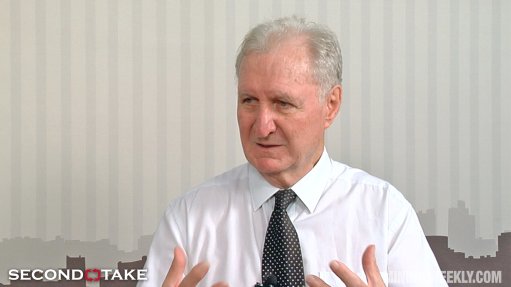Implats posts 70% earnings drop but shields investors with R1.65 dividend
Platinum group metals (PGMs) miner Impala Platinum (Implats) has reported weaker earnings for the financial year ended June 30, but says it will maintain shareholder returns, declaring a final dividend of R1.65 a share.
Headline earnings fell 70% to R732-million, or 82c a share, compared with R2.4-billion and R2.69 a share in the prior year.
Basic earnings improved to R761-million, or 85c a share, from a loss of R17.3-billion in the prior period, which had been weighed down by impairments. Implats’ earnings before interest, taxation, depreciation and amortisation (Ebitda) was R9.9-billion at a margin of 12%, and revenue declined 1% to R85.5-billion.
The group generated free cash flow of R2.4-billion and ended the year with an adjusted net cash balance of R8.1-billion and liquidity headroom of R19.7-billion.
Consolidated capital expenditure (capex) was reduced by 50% to R7-billion as spending was restricted to safety, operational efficiency and infrastructure preservation. Implats said investments were directed toward projects such as the commissioning of a 38 MW smelter alongside a 35 MW solar power plant at Zimplats, in Zimbabwe.
“Unit costs were well-controlled and benefited from easing input inflation and rand appreciation. Capex in the period was carefully planned in response to the weak rand PGM price environment and constrained profitability.
“Investments were directed toward initiatives that enhance safety, improve operational efficiency and preserve the integrity of group infrastructure,” Implats CEO Nico Muller said on August 28.
He added that profitability was affected by lower sales volumes and rand PGM prices, with gains from higher dollar prices offset by rand appreciation.
Operational challenges at its mining and processing assets, together with restructuring costs in South Africa and Canada, further weighed on earnings. Other expenses included R635-million in restructuring costs, of which R440-million related to severance provisions at Impala Canada.
PRODUCTION AND PROCESSING CONSTRAINTS
Implats’ platinum, palladium, rhodium, ruthenium, iridium and gold (6E) production fell by 3% to 3.55-million ounces. At managed operations, output declined by 4% to 2.8-million ounces, reflecting safety stoppages at Impala Rustenburg and Impala Bafokeng, reduced flexibility at Marula owing to labour restructuring, and lower fleet availability at Zimplats. Impala Canada also recorded lower volumes, in line with revised operating parameters.
Joint ventures contributed 542 000 oz, 1% lower year-on-year. Mimosa delivered a steady performance despite intermittent power interruptions, while Two Rivers achieved stronger UG2 output that was offset by lower milled volumes of low-grade Merensky ore. Third-party receipts through Impala Refining Services increased 9% to 209 000 oz.
Processing operations were affected by a series of disruptions. Implats said unplanned furnace maintenance in South Africa, heavy rains and utility interruptions at its refineries had deferred about 230 000 oz of refined production.
This included the expedited rebuild of Furnace 3 at Rustenburg and repairs to Furnace 5, which together delayed 150 000 oz, as well as water, power and hydrogen supply interruptions at the refineries, which deferred a further 80 000 oz.
As a result, refined and saleable 6E production was stable at 3.37-million ounces, despite the disruptions. The group closed the year with about 420 000 oz of excess in-process inventory.
Muller said administrative delays in moving Mimosa concentrate to its refineries would extend the timeframe for destocking, with completion now expected only in 2029.
“We have introduced an optimised operating strategy and enhanced maintenance protocols across group furnaces, and our refined volumes will benefit from the steady draw-down in excess PGM inventory,” he explained.
COSTS AND REVENUE
Stock-adjusted unit costs increased by 7% to R22 491/oz 6E. Implats said costs were affected by lower refined volumes, one-off employee payments and the expensing of capital at Impala Canada.
On a like-for-like basis, excluding these factors, unit costs rose 5.5% to R22 075/oz. The company noted that costs had been partially offset by easing inflation, a lower labour complement and the translation of subsidiary cash costs at a stronger rand.
Dollar revenue rose 3% to $1 389/oz 6E sold, but rand revenue was flat at R25 172/oz 6E owing to currency effects. Sales volumes declined 2% to 3.37-million ounces, in line with production constraints.
SAFETY AND SUSTAINABILITY
Implats recorded eight fatalities in seven incidents at its managed operations during the year. The group’s fatal-injury frequency rate improved to 0.057 per million man-hours worked, down from 0.127 in the previous period. The lost-time injury frequency rate improved 11% to 3.46, and the total-injury frequency rate improved 2% to 8.15.
The company said it remained committed to implementing recommendations from inquiries into safety incidents, including the ongoing Department of Mineral and Petroleum Resources investigation into the 11 Shaft incident.
No major environmental incidents were reported during the period.
“Implats remains firmly committed to achieving carbon neutrality by 2050. Renewable-energy agreements were concluded to supply power to our refineries, and the 45 MW Phase 2A solar project at Zimplats received board approval.
“Our focus on high-impact, strategic social performance initiatives continued through programmes supporting community wellbeing, education, skills development and infrastructure enhancement,” Muller said.
FINANCIAL AND CAPITAL POSITION
Muller noted that capex at managed operations had decreased significantly over the period, reflecting the completion of certain projects and the transfer of costs at Impala Canada to working expenses owing to its shortened life-of-mine. Stay-in-business capital fell 33% to R5.4-billion, replacement capital dropped 63% to R676-million, and expansion capital decreased 77% to R924-million.
The company maintained its capital allocation framework of returning at least 30% of pre-growth capital free cash flow to shareholders. The dividend of R1.65 a share, amounting to R1.5-billion, represented around 60% of adjusted free cash flow.
OUTLOOK
Muller said the start of the 2026 financial year had seen improved operational stability. Production is expected to be supported by sustained momentum at Impala Rustenburg, Mimosa and Two Rivers, while Zimplats and Marula are expected to show improved stability.
Volumes at Impala Canada will decline in line with the planned cessation of commercial operations during the year.
Refined volumes are forecast at between 3.4-million and 3.6-million ounces, supported by greater processing stability and the gradual destocking of excess inventory.
Implats’ stock-adjusted unit costs are expected to rise 4% to 9% to between R23 500/oz and R24 500/oz while capex is forecast at between R8-billion and R9-billion.
Muller said the company’s operational focus in the year ahead would include further efforts to improve safety, managing the closure of Impala Canada, and optimising furnace maintenance and design to improve long-term reliability.
“Our broader strategic agenda is focused on optimal capital allocation and unlocking value across our portfolio. Supported by a strong and flexible balance sheet, we aim to deliver a resilient and higher-value Implats,” he said.
Article Enquiry
Email Article
Save Article
Feedback
To advertise email advertising@creamermedia.co.za or click here
Announcements
What's On
Subscribe to improve your user experience...
Option 1 (equivalent of R125 a month):
Receive a weekly copy of Creamer Media's Engineering News & Mining Weekly magazine
(print copy for those in South Africa and e-magazine for those outside of South Africa)
Receive daily email newsletters
Access to full search results
Access archive of magazine back copies
Access to Projects in Progress
Access to ONE Research Report of your choice in PDF format
Option 2 (equivalent of R375 a month):
All benefits from Option 1
PLUS
Access to Creamer Media's Research Channel Africa for ALL Research Reports, in PDF format, on various industrial and mining sectors
including Electricity; Water; Energy Transition; Hydrogen; Roads, Rail and Ports; Coal; Gold; Platinum; Battery Metals; etc.
Already a subscriber?
Forgotten your password?
Receive weekly copy of Creamer Media's Engineering News & Mining Weekly magazine (print copy for those in South Africa and e-magazine for those outside of South Africa)
➕
Recieve daily email newsletters
➕
Access to full search results
➕
Access archive of magazine back copies
➕
Access to Projects in Progress
➕
Access to ONE Research Report of your choice in PDF format
RESEARCH CHANNEL AFRICA
R4500 (equivalent of R375 a month)
SUBSCRIBEAll benefits from Option 1
➕
Access to Creamer Media's Research Channel Africa for ALL Research Reports on various industrial and mining sectors, in PDF format, including on:
Electricity
➕
Water
➕
Energy Transition
➕
Hydrogen
➕
Roads, Rail and Ports
➕
Coal
➕
Gold
➕
Platinum
➕
Battery Metals
➕
etc.
Receive all benefits from Option 1 or Option 2 delivered to numerous people at your company
➕
Multiple User names and Passwords for simultaneous log-ins
➕
Intranet integration access to all in your organisation



